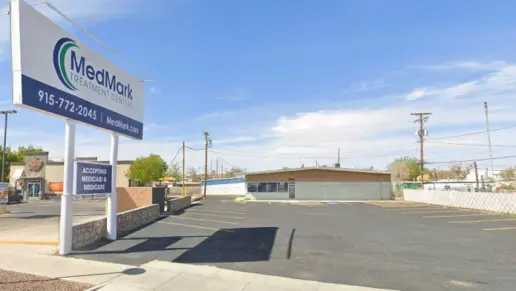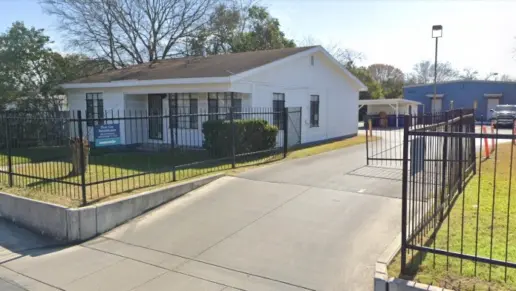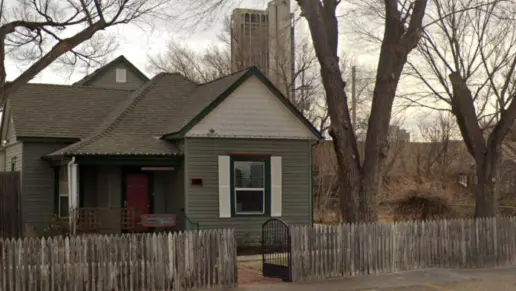About Serenity House
Serenity House is a 12 step-focused, adult drug and alcohol rehab with residential treatment centers in Abilene and Fredericksburg, Texas. They offer dual diagnosis care, medically supervised detox, coed and male-only programs, inpatient programming, and aftercare support. Their primary treatment modalities include psychotherapy and recovery-focused life skills training.
Serenity House, in Abilene and Fredericksburg, Texas, provides inpatient addiction recovery services for adults. Specialized services for adult males, young adults, and persons with co-occurring addiction and mental illness are available.
Serenity House’s Abilene location includes an accredited detox center where clients receive round-the-clock medical supervision. FDA-approved medications may be prescribed to ease withdrawal symptoms and prevent complications.
The inpatient program allows clients to focus on their recovery in a private, home-like setting with premium amenities, including chef-prepared meals and access to recreational and fitness facilities. The male-only Fredericksburg location features a secluded, wooded setting and private transportation. While in inpatient care, clients engage in intensive, trauma-informed individual, group, and family counseling drawing on proven modalities, including CBT and motivational interviewing. They also receive extensive recovery-focused life skills training, including courses in coping, self-care, wellness, and relapse prevention. Evidence-based complementary therapies include experiential therapy and nutrition therapy.
Serenity House promotes clients’ long-term recovery through a robust continuum of care aligned with clients’ evolving needs. Services may include peer coaching, 12 step program facilitation, career counseling, and referrals for medical, mental health, employment, and social service programs.
Serenity House is accredited by CARF and the Joint Commission. They accept private insurance, Medicaid, and self-pay.
Facility Overview
Latest Reviews
Rehab Score
Gallery
Other Forms of Payment
Private insurance refers to any kind of healthcare coverage that isn't from the state or federal government. This includes individual and family plans offered by an employer or purchased from the Insurance Marketplace. Every plan will have different requirements and out of pocket costs so be sure to get the full details before you start treatment.
Self-pay involves paying for treatment out of your own pocket. You can use savings or credit, get a personal loan, or receive help from family and friends to fund your treatment. If you don't have insurance or your insurance plan doesn't cover a specific program, self-pay can help ensure you still get the care you need.
Financial aid can take many forms. Centers may have grants or scholarships available to clients who meet eligibility requirements. Programs that receive SAMHSA grants may have financial aid available for those who need treatment as well. Grants and scholarships can help you pai for treatment without having to repay.
Medicaid is a state based program that helps lower-income individuals and families pay for healthcare. Medicaid covers addiction treatment so those enrolled can use their coverage to pay for rehab. When a program accepts Medicaid the client often pays very little or nothing out of their own pocket.
Addiction Treatments
Levels of Care
Treatments
The goal of treatment for alcoholism is abstinence. Those with poor social support, poor motivation, or psychiatric disorders tend to relapse within a few years of treatment. For these people, success is measured by longer periods of abstinence, reduced use of alcohol, better health, and improved social functioning. Recovery and Maintenance are usually based on 12 step programs and AA meetings.
During rehab in Texas, you'll deal with underlying issues that contribute to addiction. By addressing these challenges and learning healthy ways to cope with them, you'll develop strategies that help you live a drug-free lifestyle.
Many of those suffering from addiction also suffer from mental or emotional illnesses like schizophrenia, bipolar disorder, depression, or anxiety disorders. Rehab and other substance abuse facilities treating those with a dual diagnosis or co-occurring disorder administer psychiatric treatment to address the person's mental health issue in addition to drug and alcohol rehabilitation.
Opioid rehabs specialize in supporting those recovering from opioid addiction. They treat those suffering from addiction to illegal opioids like heroin, as well as prescription drugs like oxycodone. These centers typically combine both physical as well as mental and emotional support to help stop addiction. Physical support often includes medical detox and subsequent medical support (including medication), and mental support includes in-depth therapy to address the underlying causes of addiction.
Substance rehabs focus on helping individuals recover from substance abuse, including alcohol and drug addiction (both illegal and prescription drugs). They often include the opportunity to engage in both individual as well as group therapy.
Programs


Clinical Services
Cognitive Behavioral Therapy (CBT) is a widely used therapeutic approach that focuses on practical results, achieved through cognitive restructuring and behavior modification. In large, nationwide studies, Cognitive behavioral therapy has been proven more effective for treating substance abuse disorders than the other leading therapies. Cognitive behavioral therapy has a two-fold focus on correcting flawed patterns of thinking that lead to undesirable behavior and in unlearning bad habits and behaviors and replacing them with healthier behavior. Patients and counselors share the load for treatment under this model, making the patient largely responsible for the success of his/her own treatment.
At Serenity House, they know that no one should walk the difficult road to recovery alone. For this reason, each patient participates in daily group addiction counseling sessions. Each patient is unique with unique challenges to recovery, but many of their patients are encouraged to discover that other people can relate to their challenges and have been or are in a similar place. Group counseling is an opportunity for patients to share their deepest struggles and challenges, confront blocks to recovery, personalize information they have received during daily lectures, and provide and receive support along with their fellow patients.
Recovery from drug and alcohol addiction is one of the greatest gifts a person can receive, but the road to that recovery can be a difficult, emotionally turbulent process as you confront the deepest roots of addiction. This is why every patient at Serenity House spends regular, one-on-one time with an experienced, licensed drug and alcohol counselor. Individual recovery counseling is one of the keys to successful recovery. It is where the rubber meets the road for a patient, and they receive the support and encouragement they need to take steps towards recovery.
Couples therapy helps couples learn to control emotions, trust each other, and communicate more effectively. It can be useful for short term intervention for a specific issue or for working on the relationship long term.
Since addiction does not just affect an individual, but the whole family, recovery education is also offered weekly for family members to learn about the disease of addiction and the essentials of true recovery. Families learn about the role that they can play in their loved one’s recovery and gain insights into what their loved one’s recovery journey looks like. Then, in family counseling, they have an opportunity to process these discoveries, along with their own personal feelings and experiences.
The right life skills training will help you build the skills you need for recovery. You'll learn how to solve problems, improve your social life, enhance your mental health, and make good decisions. This is a key component of drug rehab programs in Texas.
What you eat has a significant effect on your mental and physical health. That's why many addiction recovery programs in Texas incorporate nutrition therapy in their treatment. This therapy teaches you how addiction affects nutrition, what foods are best to eat during recovery, and how to shop for and prepare healthy meals.
Addiction recovery treatment in Texas will offer recreational therapy in a holistic approach to treatment. Therapy incorporates enjoyable activities that support your physical and mental health, such as team sports, creative arts, or individual sports. This activity gives you an emotional outlet, reduces your stress, and improves your mood, each of which promotes long term sobriety.
Experiential therapy is a form of therapy in which clients are encouraged to surface and work through subconscious issues by engaging in real-time experiences. Experiential therapy departs from traditional talk therapy by involving the body, and having clients engage in activities, movements, and physical and emotional expression. This can involve role-play or using props (which can include other people). Experiential therapy can help people process trauma, memories, and emotion quickly, deeply, and in a lasting fashion, leading to substantial and impactful healing.
Amenities
-
Private Transportation
-
Residential Setting
-
Hiking
Staff & Accreditations
Staff

Regional Director Of Prevention

Director of Prevention

Program Director

Clinical Director
Accreditations

State Licenses are permits issued by government agencies that allow rehab organizations to conduct business legally within a certain geographical area. Typically, the kind of program a rehab facility offers, along with its physical location, determines which licenses are required to operate legally.
State License: Texas

The Joint Commission, formerly known as JCAHO, is a nonprofit organization that accredits rehab organizations and programs. Founded in 1951, the Joint Commision's mission is to improve the quality of patient care and demonstrating the quality of patient care.
Joint Commission Accreditation: Yes
Contact Information
312 Balcones Drive
Fredericksburg, TX 78624


